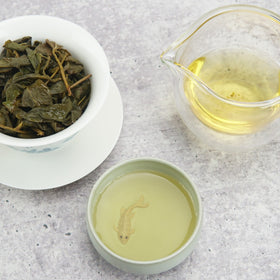Darjeeling Tea Production at Record Low
http://www.thehindu.com/sci-tech/agriculture/article1063434.ece
Erratic weather conditions coupled with low productivity has led Darjeeling tea producers to close the year 2010 with a low crop of only around 7 million kg which is among the lowest in history. There are 87 tea estates in Darjeeling with 17.5 lakh hectares under cultivation.
Chairman of Darjeeling Tea Association (DTA) Sanjay Bansal told The Hindu that according to official estimates, output is around 7.74 million kg. While the crop has been dwindling for sometime, the output in 2010 would be the lowest in the 150-year-old history of Darjeeling tea.
An extended drought which started in October 2009 and continued into this year affected both the first and the second flush crops which are the most sought-after teas in the international market. This drought was followed by a spell of excessive rains which affected the autumnal crop too.
The first flush accounts for 20 per cent of the output and between January and August a crop loss of 12 per cent was reported.
Productivity issues came to the fore on account of the ageing tea bushes in Darjeeling, the average age of which is about 80 years.
This also played a significant role in the crop loss of India's best-known commodity export item.
Darjeeling tea, which contributes only 9 per cent of the India's annual tea production, accounts for 8 per cent of its total value.
However, productivity has been a major impediment in augmenting output which had dropped over the last few years.
While earlier production was 16-17 million kg, in recent times the highest that the industry had achieved was a 14 million-kg level in 1991.
Over the years, India has lost its primacy in the world tea market to Kenya, Sri Lanka and China, but the demand for Darjeeling tea rules steady as its unique muscatel flavour cannot be replicated.
However, although the need of the hour is to go in for a massive replantation and rejuvenation drive given the age of the bushes, the Special Purpose Tea Fund has not motivated the industry to take up replantation projects as the industry says that it needs a special package for the region. While replantation is difficult for the region given its high altitude as uprooting can trigger a landslide, rejuvenation is the better option, but is considered unviable on a large scale, says industry. “The industry needs a customised SPTF,” says Mr. Bansal.
Our Comment: This news is in keeping with the slew of bad news coming out of Darjeeling ever since the recent political churning began. It will be good, for a change, if economics took precedence over politics, especially when the majority of the population can barely eke out a living.


Leave a comment